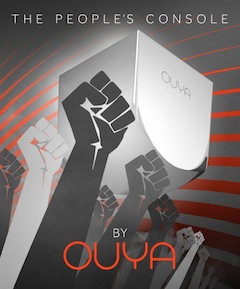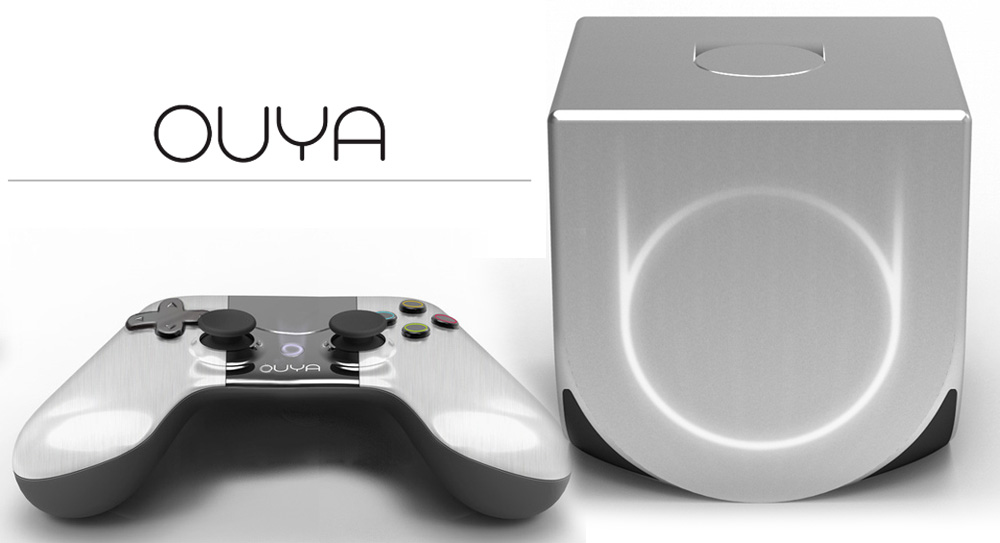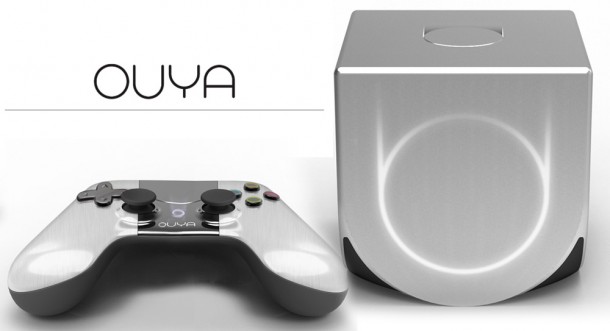When Julie Uhrman proposed the idea of a console that would bring free-to-play Android games to our living rooms, I can remember the excitement and intrigue that flooded my Twitter feed that day. Media-types I followed were cautiously enthusiastic with what the Ouya may bring to the industry, and small developers felt like they were finally being heard.
The Ouya Kickstarter was funded the $8.5 million it needed in only 8 hours. I picked one up on launch day from a local GameStop where someone had cancelled their reservation. This past Christmas, I realized something had gone wrong over the last six months because when I asked my cousin if he’d like to give it a try, he had no idea what it was. He’d never heard of it.
Something had gone terribly wrong.
Far From Utopia
When I think of the Ouya, I’m always reminded of political conversations with my college roommate, Jimmy, a staunch republican. We would often get into debates about the ups and downs of both political parties, but come to the conclusion that libertarianism is the answer.
“Dude. That’s totally it. The government just needs to relax and trust us to do the right thing! Let people and businesses do what they want.” (I knew nothing about politics at the time. I still don’t.)
“Unfortunately, libertarianism only works in a utopian society,” Jimmy would say. “People, businesses, and the government can’t always be trusted to do the right thing.”
The promise that the Ouya put forth — that games should be “free-to-try” — was too great for the console to be self-sustaining. It didn’t take long for developers to experience the brunt of this fact as game sales generally fell short of what was expected.
I’ll be honest. I spent most of my time with the Ouya browsing around and trying games for a few minutes. But in the end, this rarely led to a purchase on my part. The sad truth is that when people are left to their own devices, people will try to get as much as possible for as little as possible. I sure did. So I played the Ouya like I would walk around Costco, taking samples of frozen burritos and blocks of cheese, not really intending to buy any of these products. It often got to the point where I got full on these samples. There was simply too much to play for free.
The Ouya’s current pay model gives too much over to the player. If it’s truly supposed to be the “people’s console,” I think it’s important that we include developers as “people.” Although free-to-try looks beautiful on paper, it may be worth it to take a step away from that and make that choice up to the developers. If developers want to give players a taste of their game, they can. If they want players to pay up front, they should have the right to do so as well.
At a lower price-point, I would have definitely paid up front to try games like Polarity and Towerfall. Though the backlash for going back on their first big promise is going to be huge and a fodder for a lot of snark, we have to embrace this notion that developers are people too. People (like me) often forget that develops should maybe be compensated for their work on their own terms. This freedom is especially important to indie developers.
By the People
[dropcap] [/dropcap]One thing the Ouya lacked was appropriate marketing. It doesn’t seem like an effective amount of that $8.5 million was put towards making the general public aware of the product and its capabilities. The fact that the Ouya could also serve as a gateway to programming and designing games seems to have been often glossed over. It’s even the last bullet on the Ouya’s Discover page.
[/dropcap]One thing the Ouya lacked was appropriate marketing. It doesn’t seem like an effective amount of that $8.5 million was put towards making the general public aware of the product and its capabilities. The fact that the Ouya could also serve as a gateway to programming and designing games seems to have been often glossed over. It’s even the last bullet on the Ouya’s Discover page.
It should be one of the first.
Failing to push that component of the experience was a missed opportunity — especially when one considers where the interests of gamers are going. A year or two ago, I feel like most of my friends in the community thought the greatest job ever would be a game journalist. That has since changed to being a game developer. Every day I see friends dipping their toes into game development.
Putting more effort towards marketing and shifting some more focus towards the design-your-own-game aspect of the console would do well to put more creative eyes on it. Since the dev kit is easy to access and there’s support in the Ouya community for prospective coders, it should look attractive for creative people with $99 to spend.
I often walk around my classroom and see students showing off programs that they’ve created on their new graphing calculators. These high schoolers could be tomorrow’s game developers, and they could be introduced to the profession with an Ouya.
It will be interesting to see how Uhrman’s team markets the Ouya 2 in 2014 and if they make any changes to their free-to-try model. Though they made enough to start working on a second-generation console, their issues are much more complicated than redesigning a terrible controller. In order for the Ouya 2 to be more successful than its predecessor a success, developers are going to have to be taken better care of by being free to set their own conditions for selling their product. Moreover, the Ouya marketing team is going to have to push the console’s other strengths by appealing to would-be new developers.



1 Comment